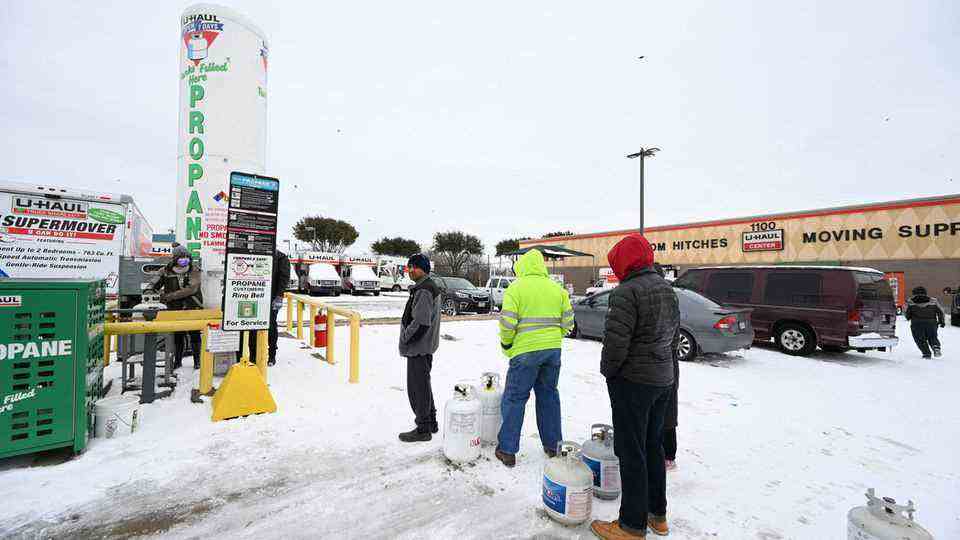Brazil
Deforestation, CO2 increase, pesticides: Greenpeace attests Bolsonaro’s policy devastating climate consequences
Jair Bolsonaro, the President of Brazil, has long been criticized for his climate policy
© Eraldo Peres/AP/DPA
Deforestation, CO2 increase, pesticides – the factors do not bode well for the climate. Nevertheless, the policies of Brazilian President Jair Bolsonaro accept them with approval. A report by Greenpeace now attests devastating consequences.
Since President Jair Bolsonaro took office in January 2019, Brazil has made fewer and fewer efforts to protect the climate. According to the recently published Greenpeace report, CO2 emissions have increased by ten percent. In 2020, 2.16 billion tons of greenhouse gas emissions were released – an increase of 190 million tons.
This roughly corresponds to the greenhouse gas emissions of Greece over three years. “This increase can be explained above all by the increasing destruction of forests – not only in the Amazon,” says Thais Bannwart of Greenpeace Brazil.
According to Greenpeace, deforestation has increased by a whopping 75 percent. Between August 2020 and July 2021, an area of over 13,235 square kilometers was cleared, according to a statement from the National Institute for Space Research (Inpe), which evaluates satellite data. This is an increase of 22 percent compared to the previous period of August 2019 to July 2020. The last time such a large area was deforested was in 2008.
Brazil uses deforested land for agriculture
In 98 percent of all cases, people are responsible for the increasing forest fires, as Greenpeace explains in its reporting. For the most part, deforestation is illegal and goes unpunished. This can be explained by the fact that Bolsonaro’s government uses the area freed up by fires and clearing of forests for cultivation and cattle breeding.
There are also increasing conflicts with the indigenous population. With 1,576 land conflicts in 2020, Brazil also recorded a new high since 1985, with a good 40 percent of the conflicts affecting indigenous communities. 18 people died in land conflicts in 2020 – seven of them were indigenous. That’s a lot in relation to the Brazilian population, because according to Greenpeace they make up just 0.4 percent of the total population.
In 2019, Bolsonaro blamed NGOs for the Amazon fires. In the middle of last year, Environment Minister Ricardo Salles resigned due to allegations of alleged involvement in the illegal timber trade. Like Bolsonaro, he also saw primarily untapped economic potential in the Amazon region. The investigations of the Supreme Court in Brazil are still ongoing.
Bolsonaro is apparently strategically weakening the environmental authorities – both financially and in terms of personnel. Employees who implement environmental regulations have been transferred. Since the right-wing populist President took office, the number of employees has been reduced by ten percent. In addition, the budget of the Brazilian Institute for the Environment and Renewable Natural Resources decreased by 30.4 percent between 2019 and 2020, and the budget of the Chico Mendes Institute for the Conservation of Biodiversity (ICMBio) decreased by 32.7 percent over the same period. In 2021, the overall budget of the Ministry of the Environment was at its lowest level since 2010.
Use of EU banned pesticides
Bolsonaro’s tenure is marked by another fact that has a negative impact on the climate: 1,500 new pesticides have been approved, writes Greenpeace. Many of them are banned in the EU, but due to the planned Mercosur trade agreement, some of them are still in danger of being imported via food. According to the environmental organization, they have already been found in imported fruit such as papaya, mango, lime, melon and figs from Brazil. Greenpeace calls on the EU not to sign the trade agreement with Brazil. “The EU-Mercosur agreement would solidify Bolsonaro’s anti-environmental and anti-human policies by fueling the increase in Brazil’s exports of beef and feed soy as animal feed, as well as highly hazardous pesticides, to the EU,” says Greenpeace forest expert Gesche Jürgens.
The Amazon plays an important role in climate protection
Brazil is ascribed a key role in climate protection. The Amazon region in the country corresponds to an area the size of Western Europe and is considered an important CO2 store. However, the area is currently experiencing its worst deforestation and devastating fires in several years. Around 20 percent of the rainforest has already been destroyed. “If we lose the Amazon, we will lose one of the largest carbon reservoirs on this planet,” said Dirk Embert, South America expert at WWF Germany a few months ago.
Months of water shortage and drought prevailed in large parts of Brazil last year. Experts justify this with the consequences of climate change. In addition, the country’s water surface has decreased by 15 percent since the early 1990s. This is also due to the conversion of forests for livestock and agriculture and the construction of hydroelectric power plants. The EU Commission has therefore already proposed to ban the import of goods for the production of which rainforest is destroyed.
Sources:Greenpeace, with material from the DPA


